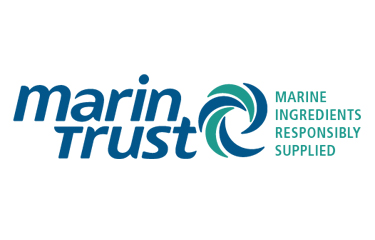MarinTrust is the new name for IFFO RS, the global marine ingredient standard for responsible supply, with the organization wanting the change to emphasize the value of trust for products sourced from certified production facilities, and thereby reinforce the industry’s reputation.
MarinTrust Executive Chair Libby Woodhatch told SeafoodSource that as well as giving the organization a name that can be understood by non-native English-speakers, the change provides some crucial distance between the certification program and IFFO, The Marine Ingredients Organization.
Although IFFO founded IFFO RS in 2009 as a means by which marine ingredient producers could demonstrate their raw materials are sourced and produced responsibly, the two organizations have long been separate entities, with their own governance structure, purposes, and budgets. Nevertheless, continuing to have similar names led the two and their functions to be frequently confused, Woodhatch said.
“The main reason behind our new name is to protect the credibility of our certificate holders because of the confusion between IFFO and IFFO RS,” Woodhatch said. “We are an independent, third-party standard that’s ISO 17065 compliant and also compliant with all of the ISEAL codes. We follow a really robust process and all those audited against the standard had to meet those high standards, but we felt that those certified were potentially at risk.”
While the new identity comes into effect immediately, the process started last year. This included the development of a new strategy that looked at the organization’s purpose, vision, and ambition, Woodhatch said.
“We will continue to work closely together with IFFO. We have an MOU and we do a lot with them, particularly around reputation. We are also both quite small and often share resources. But people will now see two organizations and that will help them to better understand how we both work.”
Despite the new identity, nothing has changed in terms of the standard, she said.
“It’s business as usual. Apart from the name, a new single logo, and a new website, everything remains the same, with the same standards. Those don’t change at all,” she said.
With the change, MarinTrust now comprises:
- The MarinTrust Standard (formerly IFFO RS Standard) for raw material producers in the fishmeal and fish oil sector to demonstrate responsible practice;
- The MarinTrust Chain of Custody (CoC) Standard (previously the IFFO RS CoC Standard), which safeguards the identity of produce sold and ensures consistent, competent and independent certification practices (a new version of the CoC standard is expected to be unveiled in August);
- The MarinTrust Improver Programme (IP), which encourages factories not yet meeting the standard’s criteria to implement improvements, fulfil criteria, and then gain certification.
MarinTrust’s governing body committee will also continue to include representatives from marine ingredients producers, traders, fish feed producers, fish farmers, fish processors, retailers, marine conservation NGOs and related standards.
A transition period is now in place, with all certified and accepted sites under the MarinTrust program having until 1 May, 2021, to phase out the use of the IFFO RS and IFFO RS Chain of Custody logos.
Since the first fishmeal plant was IFFO RS-certified in 2010, the standard has grown to include the certification of more than half of the fishmeal and fish oil produced worldwide.
“We have an ambition to increase that in our five-year plan. Up to 2025, we are looking at 75 percent, including in assessment or in our Improver Program. Obviously, with the current COVID-19 situation globally, we may have to adjust that,” Woodhatch said. “We are also looking at the other slice of the pie and why certain factories aren’t certified. There will be those around the world that don’t know about us, there will be those that feel they don’t currently need it for their market, and then there will be a number that need to go down the Improver Program. Our Improver Program has been gaining traction but it is a slower process. It takes stakeholders a while before they can be accepted on to our Improver Program because of all the work that they need to do behind that.”
Through the extension of the IP, Woodhatch also said it’s likely that there will be more fish going into human consumption as fisheries improve.
“The benefit for us is there will be more trimmings, etcetera, as byproducts,” she said. “It’s also a good opportunity for the fishmeal sector to help push sustainability.”







